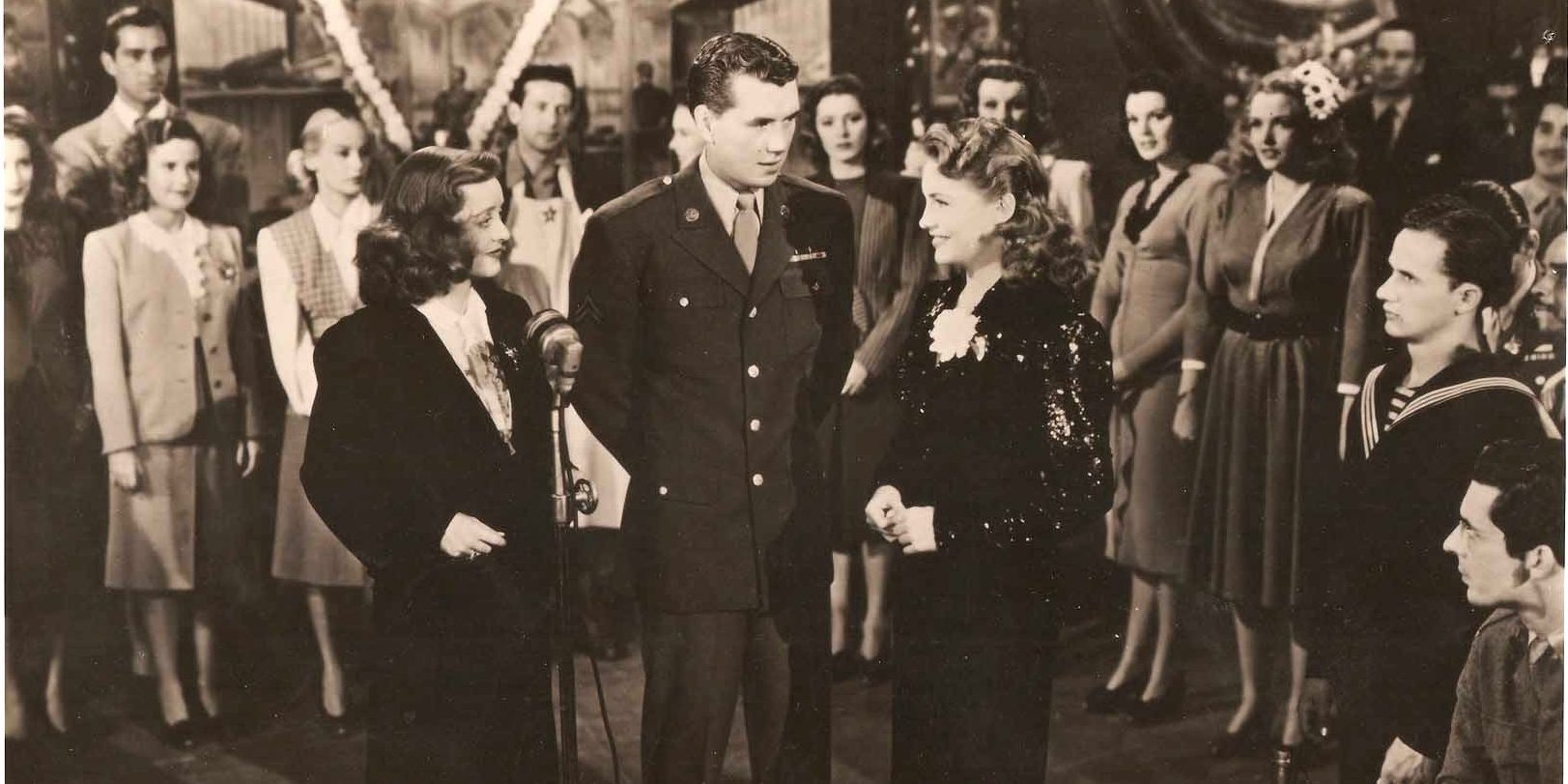We’re All on Trial
At some point in my misspent youth, I discovered the magic of films from Hollywood’s golden era. Somewhere between Academy Award winners like “Casablanca” and “The Best Years of our Lives,” I found a wartime musical with a thin story about a young soldier who met starlet Joan Leslie at the famed Hollywood Canteen.
For people who might not know it, the Hollywood Canteen was an actual nightclub for service members during World War II. Hollywood royalty of the era like Bette Davis and John Garfield helped organize all the guilds and unions of the film industry to create and support the club, while stars would volunteer as hosts and hostesses, and—legend has it—even dishwashers.
The Warner Bros. musical “Hollywood Canteen” features a soundtrack stacked with giants from the era: the Jimmy Dorsey Orchestra, the Andrews Sisters, the Golden Gate Quartet, Roy Rogers, and more. Some of the songs tied into the romance on the screen, others (like “You Can Always Tell a Yank“) were simple tributes to the troops, an homage paid by Hollywood to the men fighting the war.
Even then, as a young history student, I was fascinated by popular filmmaking during the war. Film after film featured a scene where one of the main characters would articulate a simple reason for fighting World War II. In “Hollywood Canteen,” it was explained in terms of a wounded soldier from Brooklyn being able to dance with Hollywood royalty. In the film’s telling that was the essence of democracy—the great and the good were no different than the rest of us, everyone was equal, and that was something worth fighting for.
Of course, there was myth-making in the film, a sanitized version of America that ignored women’s contribution to the war effort, systematic racism in the U.S. military and across society, and a host of other sins. But there are times when those myths serve an important purpose: to remind us of our ideals, even when we fall short of them.
I watched as much of the impeachment proceedings as work and family obligations would allow this week, and I’m ready for a little escapism. I’m ready for a reminder about America’s ideals, about a return to national unity, about the celebration of something bigger than ourselves.
That’s not to say we don’t need to go through this. In fact, in trying to hold a president accountable, Congress is living up to the charge handed down to us by our founders. There is something noble and right in that.
But I’m left with a belief that it’s not just the president who is on trial, it’s all of us. Our system of separated powers is on trial: can a co-equal branch of government hold a president accountable? Our media is on trial: can it faithfully convey hours and hours of detailed testimony in a way that busy Americans will be able to digest? Our ability to think for ourselves is on trial: will we, as citizens in this great republic, take the time to move beyond sound bites and consider the evidence ourselves, or will we take sanctuary in our familiar intellectual and political bunkers? Democracy—even reduced to that simple definition offered in “Hollywood Canteen,” that the rich and the powerful are as accountable as you and me—is on trial, too.
It’s not just the president with a lot at stake in this impeachment trial. We as Americans have a lot at stake, too, including the myths and ideals that have served as guide-stars in the American experience and as an inspiration around the world.

